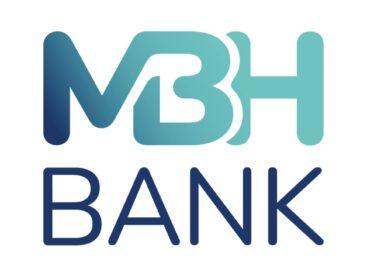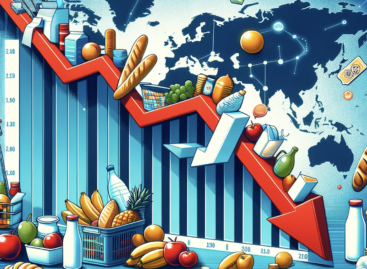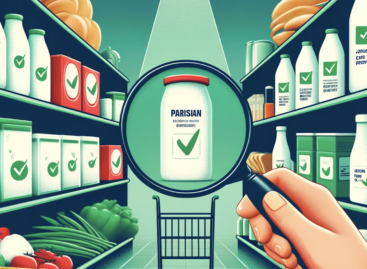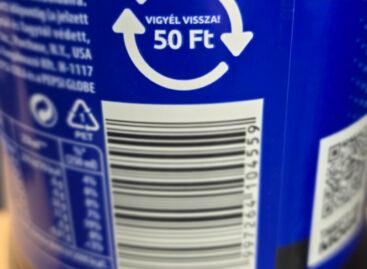Last year’s legislative proposals of the National Chamber of Agrarian Economy were successful
Legislation did not rest in the past year, the National Chamber of Agrarian Economy (NAK) also took an active part in the development and amendment of legislation affecting agriculture and the food industry. Over the past year, NAK experts have reviewed and prepared numerous legislative proposals. New laws have been passed that contribute substantially to the improvement of the competitiveness of the domestic agriculture and food industry.
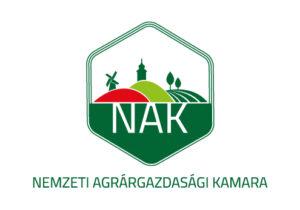
The Land Transfer Act was also amended last year, and NAK will continue to work in the future to help actual farmers gain access to land holdings and land ownership. This was the purpose of the new Land Commission inspection criteria proposal, which aims to filter out speculators and those who do not take property policy goals into account during the investigation of land transactions.
One of the most pressing problems of agriculture is the aging of the farming class
The generational change is of particular importance from the point of view of the future of Hungarian agriculture, for the purpose of which, as a result of the joint work of the Ministry of Agriculture, the Association of Hungarian Farmers’ Associations and Farmers’ Cooperatives (MAGOSZ), and the NAK, the CXLIII of 2021 on the transfer of agricultural farms entered into force on January 1, 2023. law. Stakeholders were able to find out about the details of the regulations related to the transfer of farms in a number of different forums.
One of the most important changes in the law of the past year is related to the abolition of the land tax
Thousands of farmers joined the initiative of NAK and MAGOSZ, encouraged by this success, we initiated the abolition of the land tax into law. With the effective support of the government, the Act on Local Taxes was amended on September 1, 2023, so that local governments can no longer impose a local tax on agricultural land, on the ownership of agricultural land, or on property rights registered in the real estate register on agricultural land. On July 4, 2023, the Parliament adopted the amendment to the legislation concerning personal income taxation of primary producers, jointly initiated with MAGOSZ, as a result of which primary agricultural producers can account as expenses against their income from the sale of tangible assets for newly purchased goods used in the framework of primary producer activities, exclusively for operational purposes the investment cost of tangible assets.
This significantly reduced the tax burden on the affected group of entrepreneurs. NAK also helped with the measures necessary to end the well moratorium
Pursuant to the amendment to the law adopted by the Parliament, shallow household and agricultural irrigation wells established without a permit before January 1, 2024 are generally considered legal, they do not need to be notified, and a water law permit does not need to be applied for their operation. The public body prepared a guide in order for the population and agricultural water users to be able to adapt to the new regulation on wells, which will enter into force on January 1, 2024, on the tasks required for the establishment, operation or termination of wells. With the drastic increase in energy prices last year, water service fees would have increased to such an extent that it would have been almost impossible to provide water for the 100,000 hectares currently irrigated. Therefore, at the suggestion of NAK and MAGOSZ, the government decided that (along the lines of state-owned works) the state will fully take over the payment of the agricultural (irrigation, rice production, fish farming) water service fee, which in 2023 was a significant help to the producers concerned.
The Chamber also took part in the opinion and professional consultation of the amendment to the small producer regulation
After many years of preparatory work, the new legislation was born, which eases the conditions for small-quantity, local, marginal food production, thus helping domestic small producers and “small-scale” food producers. Thanks to the decree, small producers can sell their products in larger quantities in II. in the small producer category. After that, even legal entities, family farms and social farms of original producers can be small producers, and small producers can also sell via the Internet, mail-order trade, delivery points or vending machines. An important novelty of the decree is that small-capacity slaughterhouses will be able to operate again, which can facilitate the slaughter of animals kept by small producers. In 2023, NAK also participated in the work of the Deregulation Round Table and its agricultural working group. The purpose of the round table is to simplify everyday administration, filter out slow-down rules and reduce administration. During the work carried out here, the NAK and MAGOSZ delegates also made a number of proposals, several of which were included in the bill on the deregulation aspect of the amendment of certain agricultural laws adopted by the Parliament.
Following the adoption of the KAP Strategic Plan, the development of the detailed rules for the support schemes began
The legislation on direct payments was renewed last year. A new decree was prepared, among other things, on the uniform application, the requirements for the quality of active agricultural producers, and the rules of the basic income support (BISS, formerly SAPS). The rules of greening and mutual compliance were replaced by conditionality, and the Agro-ecology Program (AÖP) appeared as a new support. Colleagues prepared professional proposals for amending the KAP Strategic Plan. In addition, NAK took part in the development of the AKG and ÖKO subsidies starting in 2025, as well as in the preparation of the rural development measures to be announced this year.
NAK
Related news
The foreign trade balance of fresh spinach was negative in 2023
In Hungary, spinach is one of the earliest outdoor vegetables. According…
Read more >Agrometeorology: more precipitation may fall in Transdanubia, but it will hardly rain in many places in Tiszántúl
Showers will irrigate first the southwestern and then the northeastern…
Read more >In alliance with agriculture: MBH Bank responds to the challenges of the market together with professional organizations
MBH Bank has signed a cooperation agreement with the Association…
Read more >Related news
OECD: Food price inflation fell sharply in most countries
The Paris-based Organization for Economic Cooperation and Development, the OECD,…
Read more >Nébih experts examined the cheapest foods
In order to protect consumers, the National Food Chain Safety…
Read more >Szentkirályi Magyarország’s deposit-fee PET bottles are already on store shelves
Szentkirályi Hungary was one of the first to start the…
Read more >



